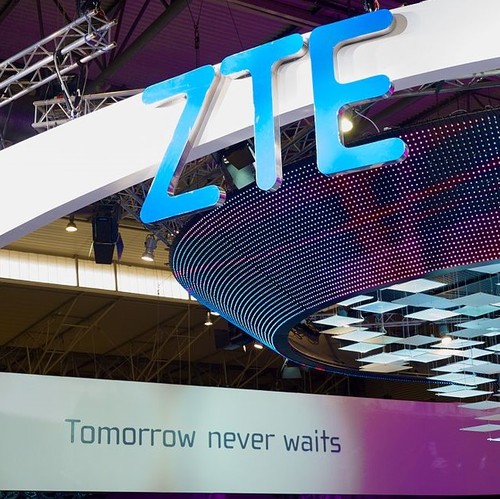ZTE whistleblower: They think the law is just a suggestion
A decade on, ZTE whistleblower shares inside story of illegal trades – as Chinese vendor exits US probation despite last-minute allegation of visa fraud.

ZTE has exited five years of US court-imposed probation despite a last-minute allegation of involvement in visa fraud.
A Texas judge ruled Tuesday that the Chinese firm should be allowed to end its probation but he encouraged the government to pursue the visa case, Al Jazeera reported.
Figure 1:  In 2017, ZTE agreed to pay a US$1.19 billion fine – the highest financial penalty the US government has ever imposed.
In 2017, ZTE agreed to pay a US$1.19 billion fine – the highest financial penalty the US government has ever imposed.
(Source: Jordi Boixareu/Alamy Live News)
The decision drew a line under the decade-long saga of ZTE's sanctions-busting trades with North Korea and Iran and record-breaking penalties.
But the conclusion, with the company facing another criminal case, did not surprise Ashley Yablon, the former employee who blew the whistle on the firm a decade ago.
"I'm not surprised because they can't help themselves," he told Light Reading. "They don't look at these laws as we in the west look at these laws. They call them 'suggestions.'"
Death threats, FBI raids and clandestine meetings
Yablon, who was ZTE America's general counsel in 2010-2011, has just published a book on his experience titled Standing Up To China: How a Whistleblower Risked Everything for His Country.
His disclosures helped the feds successfully prosecute the Shenzhen-based vendor, who pleaded guilty in March 2017 and agreed to pay a US$1.19 billion fine – the highest financial penalty the US government has ever imposed.
But when it was found that instead of firing all the employees involved in the Iran transaction ZTE had retained most of them and paid them bonuses, the Commerce Department slapped it with another $1 billion fine, and compelled the vendor to replace its entire top management tier (see ZTE Fined Another $1B in Rescue Deal With US).
In his book, Yablon describes how his dream job turned into a nightmare straight from a John Grisham novel, with death threats, FBI raids, clandestine meetings with law enforcement and his name splashed across the national media.
A few months after joining the company, Yablon came across evidence of the sale of telecom equipment to Iran and through a series of subsidiary shell companies.
It was not a total surprise. He had earlier fielded queries from the Shenzhen HQ asking how to trade with US-sanctioned countries. He was shocked and only later recognized this as one of a series of red flags.
Then, Reuters published a story that detailed the sale of telecom kits to Iran, including a copy of the entire packing list.
Movie script or real life?
In a jaw-dropping and revealing response, according to Yablon, ZTE top brass came up with increasingly outlandish schemes to evade prosecution, including falsifying the packing list, swapping out the US components and trying to change the serial numbers.
He spent some weeks wrestling with the decision to inform on the company. It's not easy to willingly blow up your career and your employer's business.
But he was persuaded by his lawyer that he was already legally exposed for not reporting the illegal trades and could be liable for any future criminal activity. Just as compelling: Yablon concluded that he had been hired for the specific purpose of being the fall guy.
So Yablon handed over his laptop to the FBI and sat down to give testimony under sealed affidavit. Staggeringly, it was leaked almost immediately to a whistleblower website, which published the story and revealed Yablon's identity.
A few weeks later when, on legal advice, he returned to work at ZTE, he found his office sealed by crime scene tape, a security guard outside his door and the word 'DIE !!!' scrawled on his whiteboard in letters three-feet high.
Want to know more? Sign up to get our dedicated newsletters direct to
your inbox
He was put on administrative leave and only after a long and bitter legal battle did ZTE agree on terms for a settlement.
Looking back, Yablon says he was guilty of "a kind of blind ambition of wanting something so bad. Careful what you wish for."
He acknowledges that his experience might also be a metaphor for western businesses and governments and their dealings with China. Entranced by the giant market, they ignored the warning signs even when waved in their faces.
His advice: "You need to go in with eyes wide open and realize the difference between western and eastern culture. When the Chinese would tell me one thing it probably meant something completely different."
Related posts:
— Robert Clark, contributing editor, special to Light Reading
Read more about:
AsiaAbout the Author(s)
You May Also Like












